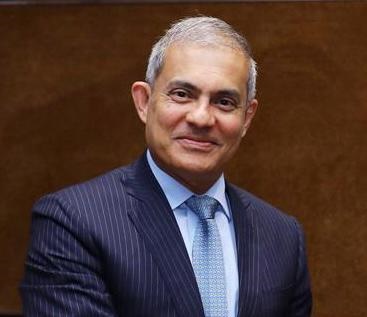Statelessness is a problem that affects millions of people around the world and leaves a person in a seemingly never-ending state of limbo, without nationality and often the most basic of rights.

Indrika Ratwatte.
Some stateless people have described it as being forced to live between the earth and the sky.
Globally some 4.3 million are registered as stateless, but UNHCR, the UN Refugee Agency, believes the actual number to be more than double, with the figure closer to 10 million.
During my time with UNHCR, I have seen the devastating impacts of statelessness on people, most notably on the Rohingya group in Myanmar, one of the largest stateless populations in the world.
I have also been fortunate to see progress, for instance, when some one million Rohingya were registered and received identity documents from UNHCR and Bangladesh, many for the first time in their lives, evoking emotions of happiness and relief that will stay with me forever.
In 2014, and against this backdrop, UNHCR announced an ambitious decade-long campaign to eradicate statelessness globally. The #IBelongCampaign calls on world leaders to include and protect stateless populations and make bold and swift moves to end statelessness. With less than a year before the campaign ends, we are calling on States to take faster and more resolute action to help meet the campaign goal.
One part of the world where significant progress and results in identifying, reducing and preventing statelessness has been achieved, is, here, in Central Asia.
This begins with raising awareness, building the necessary political will and capacity to address the issue, such as reforming nationality laws or changing documentation procedures. And, most importantly, translating this into concrete real solutions for stateless people, in pragmatic and creative ways.
I have been honored to see the life-changing impacts of what happens when statelessness is solved, particularly in Central Asia. In 2019, the Nansen Refugee Award winner was Azizbek Ashurov, a Kyrgyz lawyer, whose work supported the efforts of the Kyrgyz Republic in becoming the first country in the world to end statelessness. I was inspired by meetings with him and his organization, Ferghana Valley Lawyers Without Borders (FVLWB), which has now helped well over 10,000 people to gain Kyrgyz nationality.
One way statelessness can be solved is through universal birth registration and many countries across the region, supported by UNHCR and UNICEF, have made great strides to ensure that universal birth registration is carried out so that children will not have to face a lifetime of marginalization. With a stateless child being born somewhere in the world at least every 10 minutes, this is a problem that is growing.
In the last several years Kazakhstan, Turkmenistan and more recently the Kyrgyz Republic have amended their legislation to ensure that remaining gaps in universal birth registration have been resolved.
Other achievements from the region include Uzbekistan’s new citizenship law which should help confer citizenship for some 50,000 stateless people. Tajikistan has also enacted a special time-bound Amnesty Law for stateless people and undocumented persons to regularize their status, which UNHCR strongly encourages it to extend.
Across the entire region some nearly 187,000 stateless persons have been granted citizenship by the end of 2023 and Central Asia is now within reach to become the first sub-region to end statelessness. To achieve this goal by 2024, additional, accelerated, and targeted action will be necessary.
Recognizing the success achieved across Central Asia in recent years, UNHCR hopes that it will serve as an inspiration for other countries across the globe to follow. Strong partnerships across government, civil society, the private sector and other organizations are vital to this effort, not only on reducing statelessness but also to prevent and resolve the problem altogether.
Since high level meetings on Statelessness in 2019, Central Asian countries have continuously delivered on their statelessness-related pledges and the upcoming Global Refugee Forum in December 2023 is an opportunity to strengthen the sub-regional momentum to end statelessness.
UNHCR will continue to support efforts of countries across Central Asia to become party to the UN Conventions of 1954 and 1961 on statelessness, seen as crucial instruments in protecting the fundamental rights of stateless persons and provide them with pathways towards citizenship.
Globally, important results have been achieved since the #IBelongCampaign began.
Almost half a million stateless persons have acquired nationality. National plans to end statelessness have been formally adopted in at least 21 countries. Nine states have passed laws to ensure that no child is born stateless and another two have eliminated gender discrimination preventing women from passing on their nationality to their children. A total of 29 states have acceded to the Statelessness Conventions bringing the total number of parties to the 1954 Convention relating to the Status of Stateless Persons to 96 and 77 to the 1961 Convention on the Reduction of Statelessness.
Yet, despite these accomplishments, millions remain stateless and are living in limbo around the world, with the majority to be found in countries in Asia and Africa. This is unacceptable in the 21st century.
We therefore call on politicians and governments around the world to take action now to eliminate statelessness globally, and individuals – like you – to take any action you can in support of these efforts. In this day and age stateless people should not have to face huge barriers to exercise fundamental human rights. Every person deserves the right to a nationality and to be able to say – I BELONG.
The author is Indrika Ratwatte, the UNHCR Asia and Pacific Director

